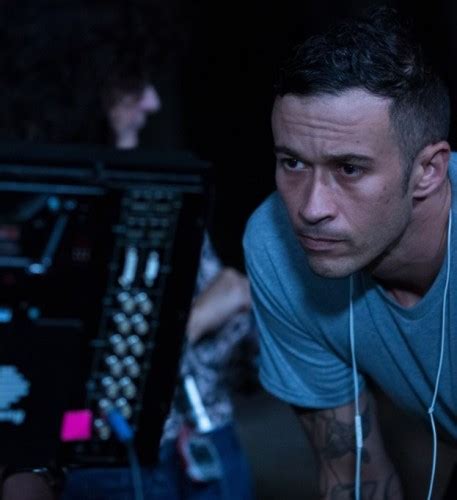A Quote by Valerie Harper
I've had very deep moments of sadness. What I do is really sob, really cry, do whatever it is, and then kind of release it. Then I can go cook dinner or make a phone call to a friend.
Related Quotes
New York was very frightening and very overwhelming, and I didn't really know anybody. My sister had some friends there, and I stayed with them, then I moved in with a friend of a friend. I was very outside my comfort zone. Then again, I was pretty uncomfortable in general - but I knew it was where I was supposed to be.
You are not a helpless victim of your own thoughts, but rather a master of your mind. What do you need to let go of? Take a deep breath, relax, and say to yourself, 'I am willing to let go. I release. I let go. I release all tension. I release all fear. I release all anger. I release all guilt. I release all sadness. I let go of all old limitations. I let go, and I am at peace. I am at peace with myself. I am at peace with the process of life. I am safe.'
Sometimes you may feel very sad, because sadness also belongs to God. Sadness is also divine. There is no necessity to always be happy. Then sadness is your prayer. Then let your heart cry and let your eyes pour down tears. Then let sadness be offered to God. Whatsoever is there in your heart, let it be offered to the Divine Feet - joy or sadness, sometimes even anger.
Even though it took forever to release a movie, and even though it's a small indie release, the fact that in five years someone will be skipping through Netflix, or Amazon, or whatever and say, "Wow, that was a really cool movie. That was a really great story. Or I was really creeped out, or intrigued by that." You almost kind of forget what it took to get there, or was it in the theaters or not. So that's kind of exciting as a filmmaker. That it doesn't really matter as much the release platform, as much as how can I see it?
So, The Color Purple changed my life. It changed everything about my life because, in that moment of praying and letting go, I really understood the principle of surrender. The principle of surrender is that, after you have done all that you can do, and you've done your best and given it your all, you then have to release it to whatever you call God, or don't call God.
I don't do enough movies that I can call it a career. It really is sort of like summer jobs or something like that. It's very much like holiday work as far as, okay, I do it, and I'm there for two weeks and hopefully am working really hard, and then it's done, and I kind of go back to what I was doing before.
SADNESSES OF THE INTELLECT: Sadness of being misunderstood [sic]; Humor sadness; Sadness of love wit[hou]t release; Sadne[ss of be]ing smart; Sadness of not knowing enough words to [express what you mean]; Sadness of having options; Sadness of wanting sadness; Sadness of confusion; Sadness of domes[tic]ated birds; Sadness of fini[shi]ng a book; Sadness of remembering; Sadness of forgetting; Anxiety sadness.




































